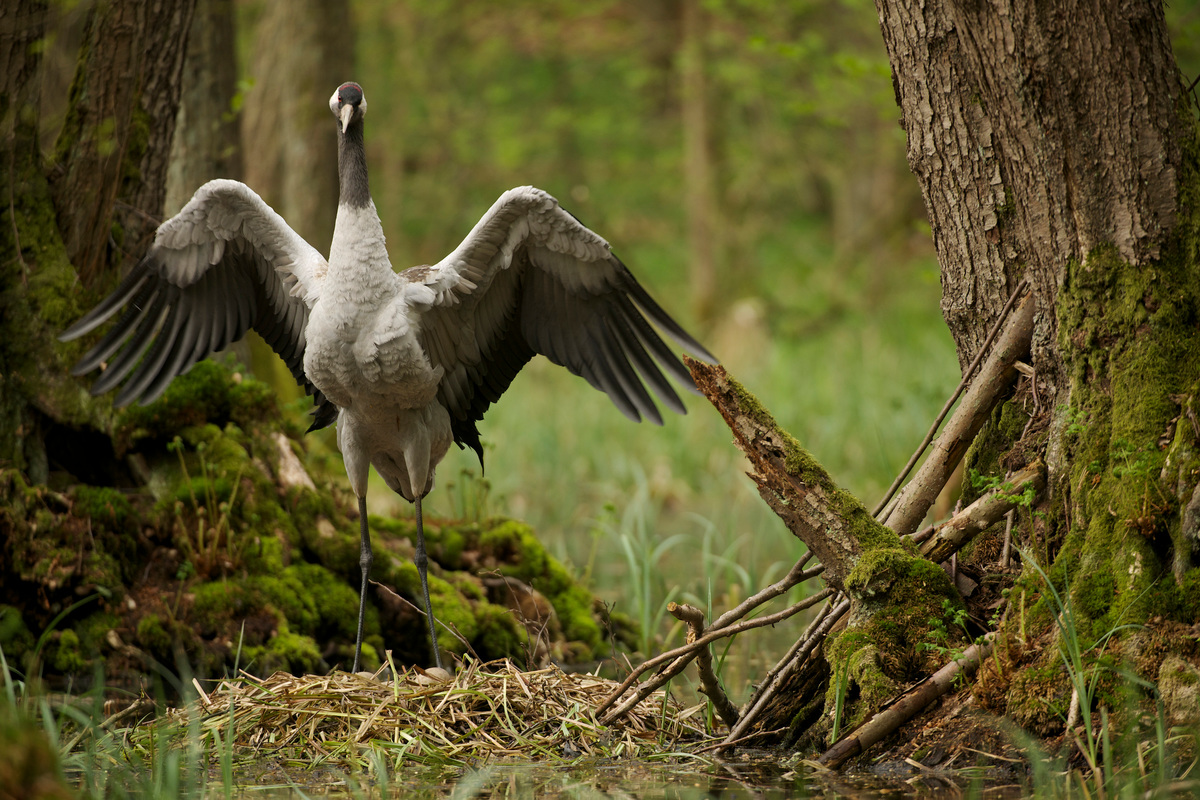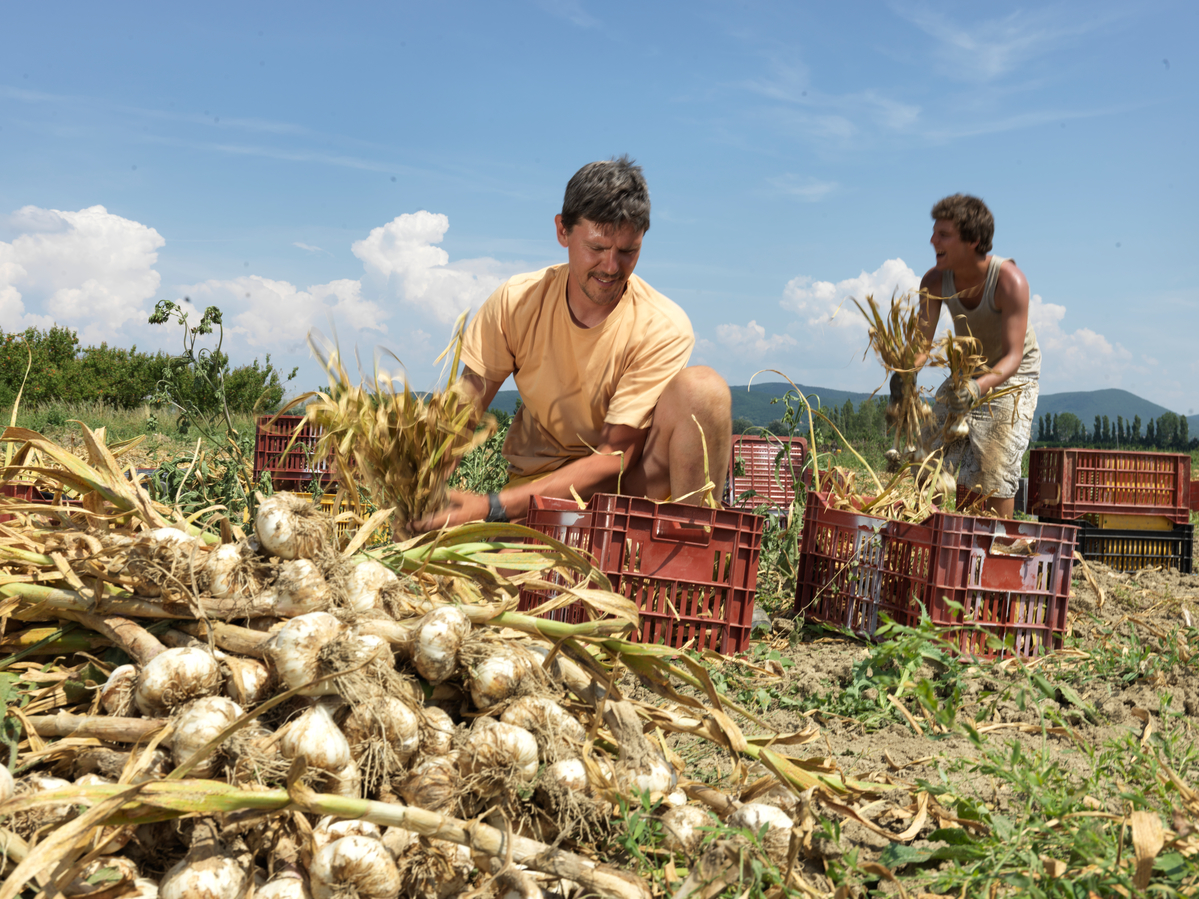A new report on Europe’s pesticide addiction addresses the thorny topic of ridding ourselves of pesticides for good.
For most of us the use of millions of tonnes and hundreds of types of synthetic chemical pesticides is the quiet and uncomfortable reality behind where our food comes from. This latest report from Greenpeace’s Food campaign highlights what’s at stake when it comes to the food on your plate.
Over the past 50 years, most farmers have treated their crops with a variety of pesticides as a matter of course, rather than as a last resort for heavy pest infestations. As a result, chemical are dumped repeatedly on a crop throughout the whole growing season. Forecasts anticipate the number of pesticide applications per crop to rise everywhere, including in so-called ‘mature’ European markets.

The Pesticide Cycle
This dependence has now come to mean that almost every ecosystem on earth has already been negatively impacted by these harmful chemicals.
Europe’s Pesticide Addiction illustrates both a devastating impact on the environment and the urgency of tightening the regulations that are supposed to control their use. It calls on us all to work to break this vicious cycle of pesticide use, now. We need to make a radical shift towards viable, chemical-free, ecological agriculture methods.
Why is such a big change necessary?
For one thing, it has been known for a long time that the use of agro-chemicals is putting wildlife and natural environments at risk. Pesticides have a major impact on biodiversity losses – with EU sources (as at 9 Oct 2015) showing around 24% of species are threatened.

Crane with crest in a forest.
The effect on the food we eat is the obvious concern. However there is indirect damage we rarely consider from pesticide use, like the death of bees, and birds feeding on small mammals which have been poisoned. In fact, one of the greatest problems is from subtle, complex and even delayed effects where animals become more susceptible to disease, or their reproductive or other functions are disrupted.
What happens next is that those secondary impacts get into whole populations and spill over to whole ecosystems. It does not just affect what we think of as ‘out there’ in nature. This is about a collapse of the food web.
Ultimately, what is at stake are the diverse ecosystem services, such as pollination, natural pest control, cleaning of drinking water, nutrient cycling and soil fertility, which are provided by a fully functioning and fully functional ecosystem.

Ecological farmer Yann Houlette harvests ecological garlic at Fruit Tree Farm near Valence, France.
At this point, you start to wonder where is the famous ‘European regulation’ we hear about all the time, right? Well there are actually big gaps in assessment, authorisation & surveillance. Gaps like reliance on modeling, rather than field data, for assessments and testing only active ingredients, rather than the formulations used in practice. And here is the huge complication… who is doing the testing for substances coming onto the market? If you guessed the chemical companies who make these products, then you guessed correctly!
In the final analysis, even regulated pesticide use poses unacceptable dangers to ecosystems that contribute to making human life both possible and worth living.
How will ecological farming make a difference?
By combining modern science and innovation with respect for nature and biodiversity we can protect the soil, water and climate that make food production possible. Crucially it ensures that control over food and farming rests with local communities, rather than transnational corporations. In Europe that means that politicians must act and shift subsidies towards ecological farming practices to meet people and farmers’ demand for healthy food and healthy farming.
You can take action right now by joining together with other concerned eaters, parents, food lovers, nature-loving gardeners, modern innovative farmers, progressive politicians and retailers. #iKnowWhoGrewIt aims to give people voicing concerns against this broken food system practical ways to move towards our shared ecological farming future.
- Read the Executive Summary [PDF]
- See the Full Report [PDF]
- Find out more about Greenpeace’s Vision for Ecological Farming [PDF]
Dr. Dirk Zimmermann is a Sustainable Agriculture campaigner for Greenpeace Germany.
